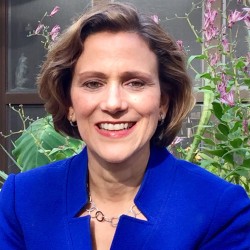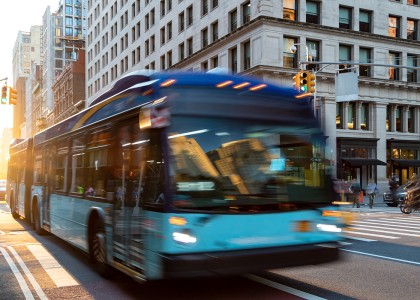Washington, DC — The COVID-19 pandemic has affected all of us, hurting some much more than others. In a sliver of good news, utilities, private companies, and other groups are reaching out to help. We found stories of our Allies donating money, delivering groceries, offering virtual energy assessments, launching diagnostic tests, providing medical equipment, and working 24/7 to keep the power on.
As required in some states, many utilities have pledged not to shut off service to those unable to pay their utility bills. Some are going further: Pacific Gas & Electric is waiving security deposits and implementing flexible payment options. Southern California Edison is offering payment assistance options, including extensions, and National Grid is suspending rate increases for three months in upstate New York.
"The impact of the COVID-19 outbreak on the communities we serve is unprecedented and creates a degree of economic uncertainty in the weeks and months ahead," said Jeff Lyash, president of the Tennessee Valley Authority. He announced that TVA will give local power companies the regulatory flexibility to halt disconnection of service and grant them access to $1 billion in credit to help address urgent community and customer needs.
Connecting with customers
Some utilities are offering no-cost virtual home energy assessments. MassSave, a collaborative of Massachusetts utilities and energy efficiency providers, said customers can participate in a live virtual discussion with an energy specialist and receive a custom report on how their homes can save energy and money.
“One of the highlights we’re offering customers is that we will pay 100% of the cost of insulation,” said Penni Conner, vice president and chief customer officer of Eversource Energy, a utility that is also contributing to food pantries and donating more than $2 million to nonprofit social service groups including United Way.
Others are connecting directly with customers as well. Chicago-based Elevate Energy, which designs and implements clean energy programs, has delivered groceries to older customers who do not have family or friends nearby and partnered with affordable housing groups to provide emergency loans to renters. It’s also helped set up bridge funds and working capital loans for diverse contractors so they can pay their staff and stabilize their businesses.
"Elevate Energy believes in, and is implementing, solutions that will prevent small businesses from collapsing due to a situation that is outside their control," Delmar Gillus, the company’s chief operating office, told ACEEE.
Offering medical help
Companies are tapping their expertise to provide COVID-19 diagnostic tests and medical facilities. Bosch announced that it will launch a test this month that will deliver results onsite in 2.5 hours rather than a day or two. Developed by Bosch Healthcare Solutions in less than six weeks, the test involves simply swabbing a patient’s nose or throat. It will allow infected individuals to be isolated immediately.
Schneider Electric is partnering with Faith Technologies, HGA, and Boldt Construction to build modular hospital pods to treat respiratory illness. The pods would be positioned in temporary medical facilities such as outdoor fields and stadium clinics. Schneider’s Secured Power Group has designed an enclosed medical tent for healthcare professionals and a “surge” drive-through testing tent that would utilize digital power and equipment. In addition, the company is in discussion with the LA County Health Department to place a 52-Kwh microgrid at Olive View-UCLA Medical Center, formerly a tuberculosis hospital with negative pressure isolation rooms that make it a promising site for COVID-19 patients.
Donating money and goods
Many companies are opening their wallets. Google announced an $800 million-plus commitment to support small- and medium-sized businesses as well as health organizations and workers. It’s providing Google ad grants to the World Health Organization and more than 100 government agencies globally to help them provide critical information on preventing the spread of COVID-19. Google has also committed to a $200 million investment fund to help small businesses access capital.
Lockheed Martin is also propping up businesses. The company said it will advance more than $50 million to small- and medium-sized business partners in its supply chains so they can continue to operate and sustain jobs during the pandemic. It will also donate the use of its corporate aircraft and vehicles for COVID-19 logistical support and medical supply deliveries.
Samsung is donating both money and electronics. It reported donating $29 million worth of funds and goods to help governments and communities with their relief efforts, including the purchase of hygiene kits containing face masks. It is donating smartphones to patients in quarantine to help them keep in touch with families and friends, air purifiers and other appliances to hospitals and quarantine centers, and tablets to schools so children can learn outside of the classroom.
Tapping technology
Other technology companies are taking broad approaches. Intel announced it has donated $10 million to support local communities and to buy gloves, masks, and other equipment for healthcare workers. It also pledged up to another $10 million to support innovative projects such as virtual intensive care unit beds and a new respirator, as well as $50 million to provide online learning services and to accelerate diagnostic and vaccine efforts.
The pandemic has prompted a supercomputing push, essential to give COVID-19 researchers the data they need to understand and fight the pandemic. This has led to the COVID-19 High Performance Computing Consortium, a private-public effort spearheaded by the White House Office of Science and Technology Policy, the U.S. Department of Energy, and IBM. Leaders from federal agencies, national laboratories, industry, and academia are volunteering their computing time on world-class machines. The consortium will review proposals from researchers and provide computing resources for projects that offer the greatest and most immediate public health benefits.
ACEEE’s Charlie Herron contributed to this blog post.




